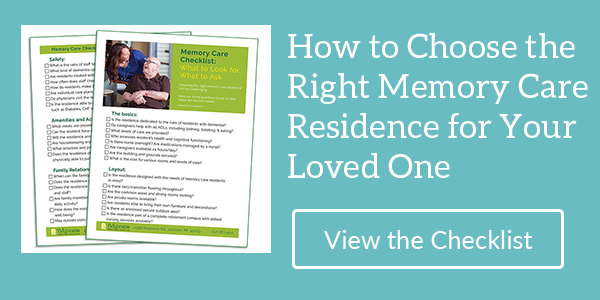One of the tasks you’ll have to face not long after your loved one is diagnosed with Alzheimer’s or dementia is telling family and close friends. Not everyone will respond in the same way, of course, and some reactions may cause disappointment. It can help to realize that they initially may feel fear, anger or unsure of how to respond or what role you may be expecting them to play.
There are guidelines you can consider to help deliver this news. It’s easier to let people know beforehand that you have something you need to discuss. This gives them some time to start preparing for the news instead of it seeming to come out of nowhere. You’ll also want to have the conversation privately and at a time when it won’t be rushed.
Remember your own reaction to the diagnosis and you’ll be better prepared for how they may take the news. This won’t be a one-time conversation so it’s important to let them know that you understand they will have many questions later on, just as you most likely did. Give them time to process the information and to ask questions and expect to see their expressions of sadness, anger or disbelief. Encouraging them to become more knowledgeable about the disease can help, as well as pointing them in the direction of educational resources and support groups.
However, if you are the primary caregiver, they’ll need to understand that you won’t be able to take on the task of helping everyone accept this news. But as you are the most familiar with your loved one’s condition and its impact, expect to be the one most people will ask for updates. You may want to appoint someone close to be the conveyor of news to those outside of the family circle.
To make this undertaking easier, here are 6 tips that may help you prepare to deliver the news.
- Whenever possible, it should be up to those diagnosed to decide who they’d like to know, when and how much information should be shared. This is not only a devastating diagnosis, but many people are sensitive to the stigma that still exists. Don’t assume this is news that should freely be shared without having the discussion with the person first. When they are not able to make this decision, try to act in the way you believe they would want or what is in their best interests.
- As much as possible, wait until you’re emotionally ready to discuss the diagnosis. Beyond immediate and close family members, it can be helpful if you give yourself a little time to process the information before having to share what has happened. But realize that keeping this a secret will also be emotionally draining to you. Being able to share this news will also mean that others can begin supporting you.
- Be honest but depending on who you’re telling, you may want to provide more or less detail. For those who will be regularly interacting with yourself and your loved one, it can be helpful if they have a better understanding of the disease, its symptoms and some of the behavior that may be expected. But don’t use your energy to be the main education resource or counselor.
- Encourage those close relatives and friends to be open and honest about how they feel. You don’t need to put on a brave front or to make them feel that you expect them to either. No one needs to be designated the strong one. In the coming time ahead, everyone’s strength will be tested and you’ll need to be able to lean on each other. It’s more supportive to feel that you’re all in this together.
- As you become more comfortable, reach out or respond to those who ask how they can help. You can’t go through this alone. Think of tasks that you could use help with or that others could more easily do, freeing up your time to tackle those that require your personal attention. Almost anyone can make a trip to buy groceries, pick up prescriptions or drive to appointments. If it’s someone your loved one would like to spend time with, maybe they could come for a visit, share an activity or go out for a walk together.
- Be prepared for the reaction you may receive upon hearing the news. There may actually be some people who will choose to no longer be in your life, although it won’t necessarily mean they don’t care. They may feel so uncomfortable, fearful that this may happen to them or someone they love or afraid that they will say or do something wrong that they will stay away. Everyone’s ability to handle life’s tough choices are different. You’ll have to just let these people go.
Brightside Memory Support Assisted Living
We know receiving a diagnosis of Alzheimer’s or dementia is hard – not only on the individual but the family and friends as well. If you’re the primary caregiver, you are also likely to be the one who will need to let people know of this diagnosis and that isn’t always easy.
We are here to help you and your loved one adjust to this life-changing news and to support you as you reach out to others. At Brightside Memory Support Assisted Living, we understand the difficulties and can help you rise to the challenges.
If you have questions about short- or long-term care for a loved one with dementia, contact Brightside Assisted Living and Memory Care today or call Margaret Nagel at (517) 206-5000 or download our brochure to learn about our care levels, cost, and amenities.


